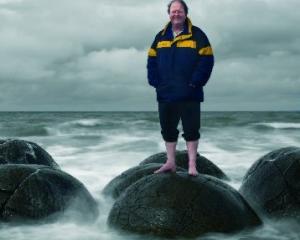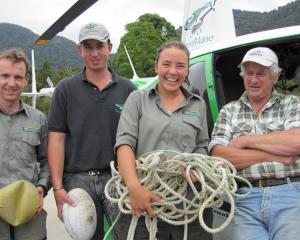The New Zealand Government is doing nothing as an Antarctic ice shelf threatens to collapse, Greenpeace says.
A British Antarctic survey showed the Wilkins Ice Shelf, the ice bridge of which shattered on Saturday, was drawing closer to collapse and the Government had done nothing towards progress on a climate deal in Germany, Greenpeace political advisor Geoff Keey said.
Delegates meet in Bonn, Germany for the first stage of United Nations climate talks. The talks end on April 8.
New Zealand officials are attending the talks.
"Wilkins provides us with one of the starkest reminders of just how fast climate change is occurring and yet the New Zealand Government still refuses to face facts," Mr Keey said.
New Zealand refused to agree to a proposed national emission reduction target, he said.
Greenpeace said the Government should commit to a target of 40 percent emissions reductions by 2020.
The Government target is a 50 percent reduction by 2050.
"As climate change in the real world becomes more visible by the day, New Zealand remains in a bubble where it thinks it can weasel out of international obligations."
When asked in Parliament about the Government's target, Associate Minister for Climate Change Issues (International Negotiations) Tim Groser said it was a matter of balance between environmental and economic objectives.
"I believe we are making a contribution in Bonn to help shape international thinking on the objective and fair approach to sharing the effort on reducing emissions, taking account of different countries' national circumstances."
He said New Zealand's presentation was well-received by everyone "except, of course, by Greenpeace".
Glaciologist David Vaughan, with the British Antarctic Survey, said it was "amazing how the ice has ruptured".
Two days ago the ice bridge was intact, he said.
"We've waited a long time to see this."
The Wilkins, now the size of Jamaica, is one of 10 shelves to have shrunk or collapsed in recent years on the Antarctic Peninsula, where temperatures have risen in recent decades apparently because of global warming.
Nine other shelves have receded or collapsed around the Antarctic Peninsula in the past 50 years, often abruptly like the Larsen A in 1995 or the Larsen B in 2002 further north.
Cores of sediments on the seabed indicate that some of these ice shelves had been in place for at least 10,000 years. Mr Vaughan said an ice shelf would take many hundreds of years to form.
"We believe the warming on the Antarctic Peninsula is related to global climate change, though the links are not entirely clear," he said.
Antarctica's response to warming will go a long way to deciding the pace of global sea level rise.




